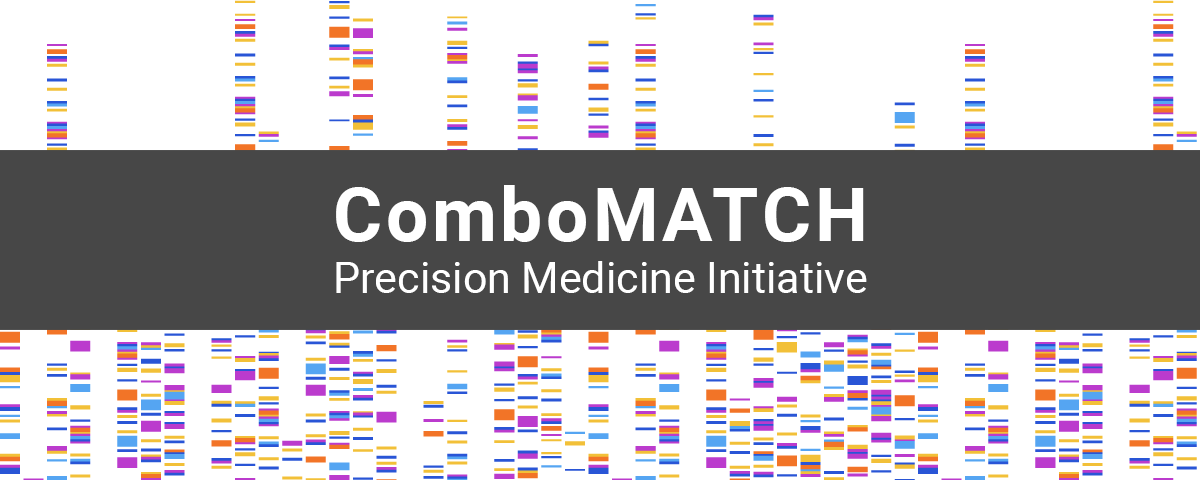
Video: Advocates discuss the EA2185 research study for patients with pancreatic cysts
March 23, 2023
Should I stay or should I go?
March 23, 2023The ComboMATCH precision medicine initiative is getting set to evaluate several new anti-cancer drug combinations

Cancer clinical trials traditionally explore new treatment options based on cancer type—where cancer occurs in the body. The drugs or procedures that work for breast cancer, for example, may be very different than those that work for myeloma. However, in recent years, researchers have been testing a new approach. They select patients for clinical trials based on testing of their cancer cells. This strategy is known as precision medicine. In these clinical trials the treatments target, or work against, tumor changes that drive the growth and spread of cancer cells.
The latest approach is the ComboMATCH (Molecular Analysis for Combination Therapy Choice) precision medicine initiative (also known as study EAY191). This coordinated set of clinical trials aims to evaluate several new anti-cancer drug combinations in select groups of patients. ComboMATCH is for patients with cancer that has spread and has become worse following treatment, or cancer for which no standard therapy exists.
As of March 6, hospitals and cancer centers nationwide are opening ComboMATCH on a rolling basis over the next few months. The patient registration trial and three treatment trials are now open, and six more treatment trials will open shortly.
Will genetically matched drug combinations be more effective than single drugs? ComboMATCH aims to find out.
The drug combinations in ComboMATCH have previously shown evidence that they may be more effective than single-drug therapy in treating some cancers. Most tumors do not have a single genetic driver of cancer growth. Therefore, most patients do not benefit from single-drug therapies that target only one gene abnormality. Even when patients benefit from genetically matched single drugs, the medicines often stop working eventually—an outcome known as drug resistance. Using multiple drugs that attack cancers in different ways—targeting different gene abnormalities—is one method to potentially delay or overcome resistance.
ComboMATCH builds on the findings of a previous study, NCI-MATCH, which also paired patients with treatment based on their cancer's molecular abnormalities. NCI-MATCH was groundbreaking as one of the first and largest precision medicine cancer trials. The study demonstrated that targeting genetic changes in a tumor may be an effective way to treat cancer. It also showed that people with advanced cancer may benefit from tumor testing to help plan their treatment.
ComboMATCH is led by the ECOG-ACRIN Cancer Research Group and National Cancer Institute, with treatment trials by the Alliance for Clinical Trials in Oncology, Children's Oncology Group, ECOG-ACRIN, NRG Oncology, and SWOG Cancer Research Network.
The study chair for this trial is James M. Ford, MD (Stanford University/Stanford Cancer Institute). The co-chair is Funda Meric-Bernstam, MD (MD Anderson Cancer Center).
Learn more about EAY191/ComboMATCH at ecog-acrin.org.

